Skill Performance

Can nutrition affect an athlete's skill level ?
Nutrition is vital for athletes' overall well-being and performance, including skill enhancement, recovery, and injury prevention. It affects cognitive function, physical performance, and recovery, ultimately influencing an athlete's skill level. A balanced diet with proper nutrients can help athletes reach their full potential and succeed in their sports.

How important is rest and recovery in skill enhancement ?
The text discusses the importance of rest and recovery in the process of skill enhancement. It highlights the cognitive and physical benefits of taking breaks, such as improved mental clarity, memory consolidation, muscle recovery, and injury prevention. The practical implications include avoiding burnout, enhancing performance, and strategies for incorporating rest into practice schedules. Overall, the text emphasizes that rest is a crucial component of long-term skill development and should be given equal consideration alongside deliberate practice and training regimens.

Can playing multiple sports help in skill development ?
Participation in multiple sports can enhance overall athleticism and skill development by improving physical attributes, reducing injury risk, developing transferable skills, and promoting mental toughness. It also offers social benefits such as expanded networks and increased opportunities for exposure. While specialization has its advantages, playing multiple sports can help athletes become well-rounded competitors.

How can team sports help in individual skill development ?
Team sports contribute significantly to individual skill development by improving communication skills, enhancing leadership abilities, increasing self-confidence, bettering time management, improving social skills, promoting physical fitness and coordination, providing opportunities to learn from mistakes, and fostering adaptability.
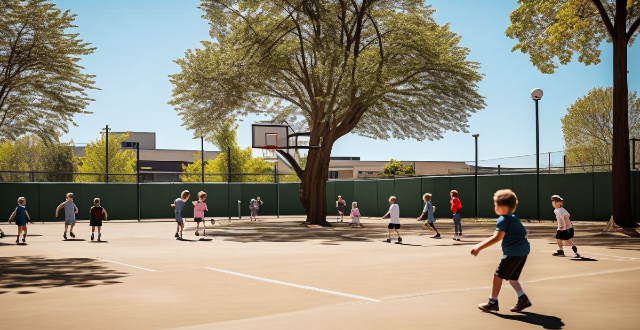
Are there specific sports that improve academic performance in children ?
The article discusses the potential benefits of different types of sports on academic performance in children. It highlights team sports like basketball, soccer, and volleyball for their ability to teach social skills, time management, and discipline. Individual sports such as swimming, tennis, and gymnastics are noted for promoting self-discipline, goal setting, and mental toughness. Outdoor sports like hiking, cycling, and rock climbing are mentioned for providing physical activity, stress relief, and exploration opportunities. The conclusion emphasizes the importance of considering individual differences among children when encouraging sports participation for academic improvement.

Can extracurricular activities improve academic performance ?
Extracurricular activities can improve academic performance by developing time management skills, increasing motivation and engagement, enhancing social skills and networking, and providing stress relief and mental health benefits.

What role does visualization play in sports performance ?
Visualization is a powerful tool that can enhance sports performance by improving focus, confidence, technique, recovery, and motivation. It involves creating mental images of desired outcomes or actions, which can lead to better concentration, increased self-efficacy, enhanced motor learning, reduced risk of injuries, and higher levels of motivation. By incorporating visualization into their training routines, athletes can strengthen their physical and mental capabilities, resulting in improved performance during competition and training.

How do I choose a tennis training camp that fits my skill level ?
Choosing a tennis training camp that fits your skill level can significantly improve your game. Here are some tips on how to select the right camp: 1. Assess your current skill level by considering your experience, strengths and weaknesses, and fitness level. 2. Research different camps that offer programs specifically designed for your skill level using online directories, social media groups, and reviews from previous attendees. 3. Check the coaches' qualifications and experience, including their credentials, coaching philosophy, and track record of working with players at your skill level. 4. Consider the quality of the camp's facilities and amenities, such as well-maintained courts, access to equipment, and onsite amenities like locker rooms and dining areas. 5. Evaluate the camp's reputation and success rate by reading reviews, asking for referrals, and contacting the camp directly to learn more about their success stories.

Is speed reading a natural ability or a skill that can be learned ?
Speed reading is a topic of interest for many individuals who wish to improve their reading efficiency and comprehension. The question arises whether speed reading is a natural ability that some people possess, or if it is a skill that can be learned and developed through practice and training. While there may be some individuals who possess a natural ability for speed reading, it is generally accepted that speed reading is a skill that can be learned and improved upon through practice and training. By employing specific techniques and strategies, anyone can enhance their reading speed and comprehension, ultimately increasing their productivity and knowledge acquisition.
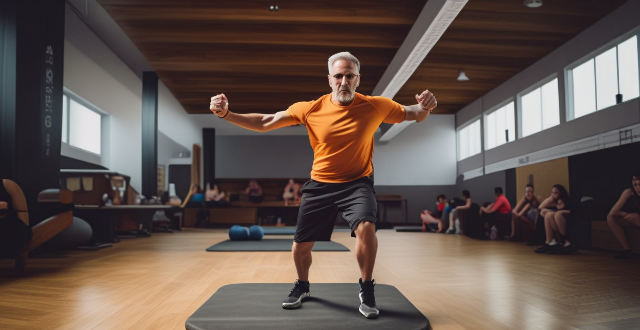
What role does visualization play in enhancing sport performance according to sports psychology ?
Visualization, also known as mental imagery or mental practice, is a technique used by athletes to enhance their performance. In sports psychology, visualization plays a crucial role in enhancing sport performance. Benefits of visualization include improved focus and concentration, increased confidence and self-efficacy, enhanced motor learning and skill acquisition, better emotional control and coping strategies, and improved recovery and rehabilitation. To use visualization effectively, set clear goals, create a mental image, practice regularly, combine with physical practice, stay positive, and seek professional guidance.
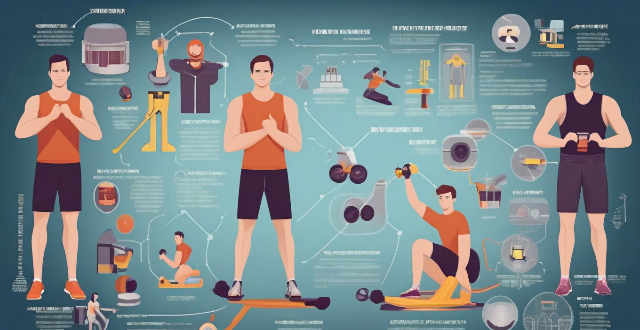
How important is visualization in building a strong sports mentality ?
Visualization, or mental imagery, is a powerful tool for athletes to enhance performance and build a strong sports mentality. It involves using imagination to simulate experiences and practice skills mentally. The science behind visualization shows that it activates similar neural networks as physical performance, aiding in motor learning and refining movement patterns. Psychologically, it boosts confidence and reduces stress. Benefits include skill refinement, strategy planning, resilience building, focus sharpening, clear goal setting, and increased motivation. To implement visualization effectively, find a quiet space, set clear intentions, use all senses, and ensure positive outcomes. Incorporating visualization into training can significantly improve an athlete's readiness for competition and overall sports psychology.
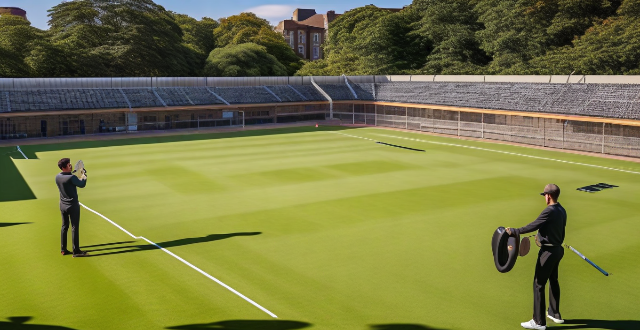
Can sports improve academic performance in adolescents ?
Sports can positively impact academic performance in adolescents by improving physical health, mental well-being, and social skills. Studies show a positive correlation between sports participation and academic achievement, with athletes often achieving higher grades and increased college admission rates. However, individual differences and external factors must also be considered when evaluating this relationship.

What are the key factors that contribute to high-level sports performance ?
High-level sports performance is determined by a combination of physical prowess, mental strength, tactical acumen, and favorable environmental conditions. Physical factors include strength and conditioning, flexibility and mobility, nutrition and hydration, and rest and recovery. Psychological factors encompass mindset and motivation, confidence and self-belief, mental toughness, and concentration and focus. Tactical factors involve technical skill, game intelligence, adaptability, and teamwork and communication. Environmental factors include training facilities, coaching staff, and support personnel. By addressing each of these factors through dedicated training and support systems, athletes can reach their full potential and achieve excellence in their chosen sport.

Is there a correlation between sports participation and academic performance ?
The article explores the correlation between sports participation and academic performance. It highlights the potential benefits, such as improved time management skills, increased motivation and discipline, and enhanced social skills, but also acknowledges the potential drawbacks, including time constraints, fatigue, pressure, and stress. The conclusion emphasizes the importance of finding a balance between sports commitments and academic responsibilities for optimal performance in both areas.

What are the benefits of attending a high-performance tennis training camp ?
Attending a high-performance tennis training camp can significantly improve players' skills and overall performance. These specialized programs offer a range of benefits, including technical skill enhancement, physical conditioning, mental toughness development, exposure to high-level competition, networking opportunities, personalized instruction, and off-court education. With a focus on stroke technique, footwork drills, strategy development, strength and cardiovascular training, flexibility, mental preparation, and stress management, these camps are designed to foster a competitive mindset and prepare players for the rigors of professional tennis. Additionally, the chance to play against strong opponents, receive feedback from experienced coaches, and connect with peers and potential mentors further enhances the value of these camps. Personalized training plans, goal setting workshops, and video analysis also contribute to the comprehensive nature of the training. Beyond physical and technical improvement, camps provide education on nutrition, sports psychology, and equipment knowledge, ensuring that participants are well-equipped both on and off the court. Overall, high-performance tennis training camps offer a holistic approach to tennis development, making them an invaluable resource for players looking to elevate their game.
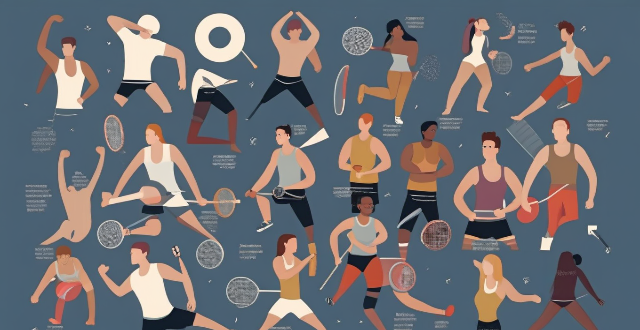
How do psychological factors influence sports performance and research ?
This document discusses the influence of psychological factors on sports performance, emphasizing the importance of motivation, confidence, concentration, resilience, and team dynamics. It highlights how these elements can enhance or hinder athletic performance and underscores the significance of research in understanding and applying psychological principles to optimize athlete mental states. The text concludes by noting the potential for ongoing research to refine our comprehension and application of psychology in sports, aiming to help athletes achieve their full potential mentally and physically.
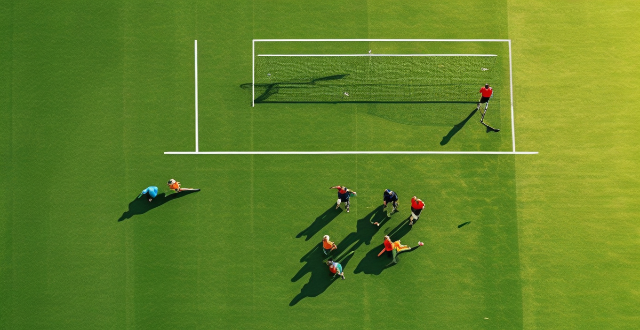
To what extent do technological advancements (like improved equipment and analytics) influence sports performance at the highest level ?
Technology has significantly impacted sports performance through improved equipment, advanced analytics, and enhanced training methods. Lightweight materials, aerodynamic designs, and customized gear have boosted athlete performance. Safety measures and recovery tools have minimized injuries and accelerated healing. Smart devices and simulation tools aid efficient training. Advanced analytics aid in performance tracking, strategy development, and team management. However, these advancements may create disparities between teams with unequal access to technology. They also raise debates on skill versus technology's role in sports. Despite concerns, technology enhances fan engagement through interactive experiences and data visualization. As technology advances, governing bodies must ensure equitable access and maintain fair competition while embracing its role in shaping the future of sports.

What are the best ways to enhance athletic performance ?
Improving athletic performance involves a combination of physical, mental, and lifestyle factors. Here are some strategies that can help athletes reach their full potential: ## Physical Training ### Strength and Conditioning - Incorporating weight training helps build muscle strength and endurance. - Plyometrics exercises like box jumps and bounding improve power output, crucial for many sports. ### Technique and Drills - Perfect practice makes perfect; focusing on the quality of movements rather than just quantity. - Practicing game scenarios can enhance decision-making skills under pressure. ### Recovery - Light activities like walking or swimming can aid recovery. - Stretching and foam rolling help reduce muscle soreness and improve flexibility. ## Nutrition and Hydration ### Diet - Consuming a mix of proteins, carbohydrates, and healthy fats supports energy levels and recovery. - Drinking enough water is essential for maintaining performance and preventing cramps. ### Supplementation (When Needed) - Sports drinks during prolonged exercise can replenish electrolytes and provide energy. - Post-workout protein shakes can aid in muscle repair. ## Mental Preparation ### Visualization - Seeing yourself succeed in your mind's eye can boost confidence and focus. - Setting clear, achievable goals provides direction and motivation. ### Mindfulness and Stress Management - Meditation can reduce anxiety and improve concentration. - Controlled breathing can lower stress levels before and during competition. ## Lifestyle Habits ### Sleep - Athletes need adequate rest to recover physically and mentally. - Maintaining a consistent sleep schedule optimizes rest. ### Avoiding Negative Habits - Substances can impair judgment and harm performance. - High stress levels can negatively impact both physical and mental health.
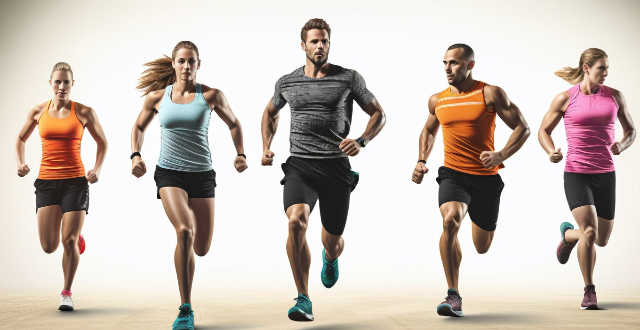
What are the most common metrics used in analyzing sports performance ?
Analyzing sports performance is crucial for athletes, coaches, and teams to improve their skills, strategies, and overall performance. There are several metrics used to evaluate different aspects of sports performance, including time-based metrics such as speed and pace; distance-based metrics such as distance covered and displacement; power-based metrics such as peak power and power endurance; technique-based metrics such as form analysis and biomechanical analysis; physiological metrics such as heart rate and VO2 max; and mental metrics such as mental toughness and motivation levels. These metrics can help athletes and coaches identify areas for improvement and develop effective training programs to enhance performance.

Is there a specific age or stage in an athlete's life where they are most likely to reach peak performance ?
Athletes tend to reach their peak performance during their late teens to early twenties due to physical maturity, mental maturity, training and experience, and lifestyle factors. Physical maturity includes muscle development, cardiovascular fitness, and speed and agility improvements. Mental maturity involves focus and concentration, decision-making skills, and mental toughness. Training and experience lead to skill development, tactical understanding, and adaptability. Lifestyle factors such as nutrition, rest and recovery, and educational commitments also play a role in an athlete's potential for reaching peak performance.

What impact does female leadership have on organizational culture and performance ?
The impact of female leadership on organizational culture and performance is significant. Women leaders prioritize collaboration, diversity, emotional intelligence, innovation, financial performance, and customer satisfaction, leading to a positive work environment and business success.
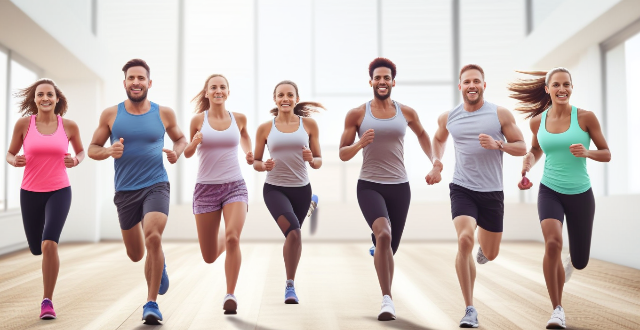
What role does mental preparation play in improving running performance ?
Mental preparation is key to improving running performance. It involves setting clear goals, using visualization techniques, practicing mindfulness exercises, and employing self-talk strategies. By training the mind to focus on the task at hand, manage stress, and maintain motivation, runners can enhance their physical performance and achieve their running goals.

How does network expansion affect the overall network performance ?
Network expansion can significantly impact overall performance, offering benefits such as increased bandwidth, improved redundancy, and enhanced connectivity. However, challenges like compatibility issues, security concerns, and complexity management must be addressed to maintain optimal performance. Careful planning is crucial for successful network expansion.

How can I improve my self-evaluation skills in the workplace ?
Self-evaluation is a crucial skill in the workplace, allowing you to reflect on performance and set goals for improvement. To enhance this skill, set clear SMART goals, track progress, seek feedback, remain objective, reflect on experiences, celebrate successes, identify areas for improvement, and stay open to change. This process should be ongoing, with regular practice leading to greater success over time.

Can napping improve athletic performance ?
**Can Napping Improve Athletic Performance?** Napping is a common practice among athletes and non-athletes alike, but can it really improve athletic performance? Research suggests that napping can aid in physical recovery and enhance cognitive function. Physical Recovery: - **Muscle Repair**: Sleep produces growth hormone, aiding in muscle repair and growth. - **Reduced Inflammation**: Sleep reduces inflammation, leading to better recovery after exercise. Cognitive Function: - **Improved Focus**: A quick nap can improve focus and concentration for peak performance. - **Enhanced Learning**: Sleep consolidates memories, allowing athletes to learn from mistakes and improve skills faster. Effective Napping Tips: Timing: - **Power Naps**: Limit naps to 20-30 minutes to avoid deep sleep and feeling groggy upon waking. - **Timing Before Bedtime**: Avoid napping too close to bedtime to prevent disrupting the nighttime sleep cycle. Environment: - **Quiet and Dark**: Find a quiet, dark place to nap for better sleep quality. - **Comfortable Surface**: Choose a comfortable surface to prevent waking up with aches and pains. In conclusion, napping can improve athletic performance by aiding physical recovery and enhancing cognitive function. It's important to nap effectively by timing your naps appropriately and creating a comfortable environment.

How does music affect athletic performance ?
Text is about how music can affect athletic performance. It explains the ways in which listening to music while exercising or competing can increase motivation, improve focus, reduce the perception of effort, and distract from pain and fatigue, leading to better performance and results.

Can wearable technology improve athletic performance ?
The text discusses the potential benefits of wearable technology for athletes. Wearable devices can provide real-time feedback, goal setting and tracking, motivation, injury prevention, and data analysis to improve athletic performance. However, they should not replace traditional training methods or professional coaching. Athletes should use them as a tool to complement their existing training program and consult with experts when making decisions about their training and performance goals.

How does hydration affect exercise performance
Hydration is crucial for optimal exercise performance. Dehydration can cause fatigue, headaches, and decreased performance. To maintain hydration levels, drink water before, during, and after exercise, and consume electrolyte-rich drinks like sports drinks or coconut water. Eating foods that contain water or electrolytes can also help. Proper hydration ensures our bodies are functioning at their best.

Can watching sports movies improve your athletic performance ?
**Can Watching Sports Movies Improve Your Athletic Performance?** *Watching sports movies can provide motivation, teach techniques, and emphasize the importance of sportsmanship and teamwork. While they won't directly enhance performance, they can inspire consistent practice and hard work.*

Can certain vitamins improve athletic performance ?
Vitamins play a crucial role in various bodily functions, including metabolism, immunity, and tissue repair. Athletes often seek to optimize their performance by ensuring they have adequate vitamin intake. Certain vitamins like B-complex, Vitamin D, Vitamin C, and vitamins A, C, and E can improve athletic performance by supporting energy metabolism, muscle function, recovery, and immunity. However, it's essential to ensure an adequate intake through a balanced diet and consider supplementation only when necessary and under professional guidance. The key is to find the right balance that works for each individual athlete's unique needs and circumstances.